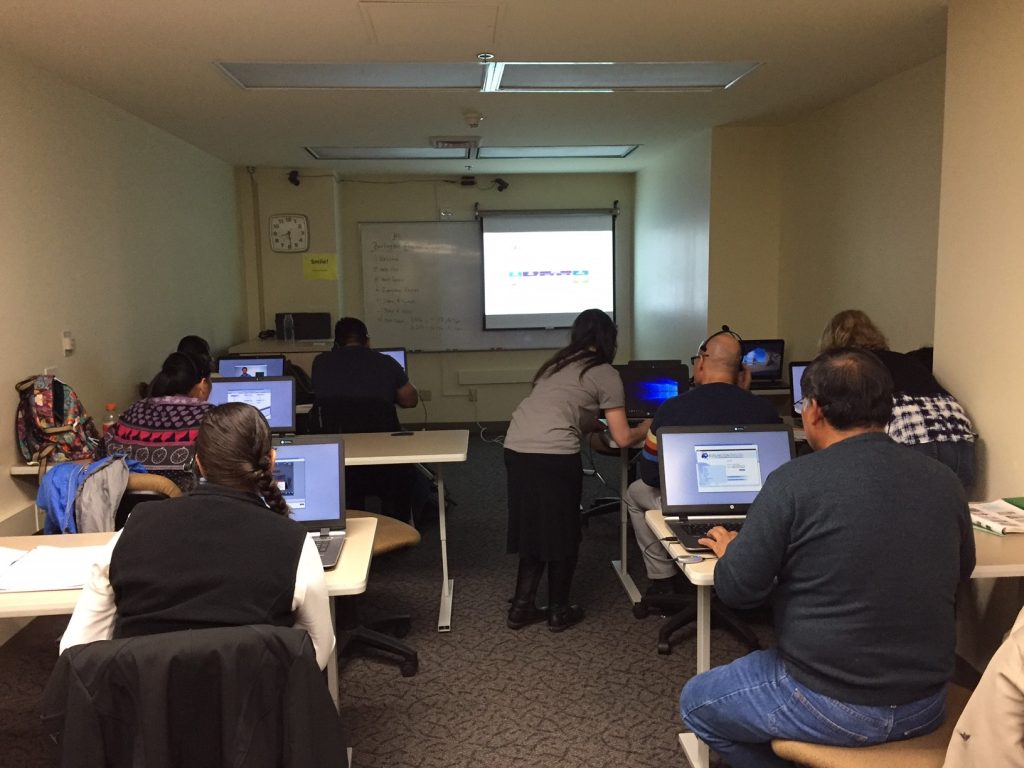Long a staple of adult education, ADVANCE has helped turn South Lake Tahoe’s version into a tailored and cutting-edge program

Meeting any need is a challenge. Meeting the needs of a diverse population in a constantly changing environment requires more than hard work and dedication.
It requires new and creative responses. And, yes, often a little cash.
All of those have fallen into place with the partnership between ADVANCE and the English Language Learner program at Lake Tahoe Community College. As a result, Lake Tahoe area residents who do not have English as their primary language have been given new tools to clear barriers in their personal lives and be more likely to meet career and educational goals.
“We were kind of stuck in the things we were doing. I had a lot of ideas about the ways I wanted to innovate, but there weren’t a lot of resources to make that happen.”
Maxine Alper, English as Second Language department chair, Lake Tahoe Community College
“We were kind of stuck in the things we were doing,” says Maxine Alper, English as Second Language Department chair at Lake Tahoe Community College. “I had a lot of ideas about the ways I wanted to innovate, but there weren’t a lot of resources to make that happen.”
State funding flowing through ADVANCE has changed that. These resources have allowed the partnership to be more creative in finding new solutions.
The curriculum has been revamped to include targeted language courses in conversation, pronunciation and writing.
But there was a larger attempt to make the program more holistic, to meld the straight academic courses with life and job skills. For instance, making the culinary classes more accessible to Spanish-speaking students.
One of the biggest challenges is the diverse needs of those looking to improve their English proficiency.
Some come to the program with limited education. Others are highly educated professionals from other countries who need to secure licensing and credentials to work here. Some are looking primarily to enter the job market. Others may want to communicate with their children’s teachers, doctors and nurses without having to use their children as interpreters.
One of the innovations was the introduction of Burlington English, an online platform that, along with a program to loan computers, enables students to learn on their own time.
“If they are at home, or in a restaurant, rather than scrolling through Facebook or playing a computer game, they can use this,” Alper says.
ADVANCE bilingual transition navigator Grace Davis says Burlington English and Voxy EnGen open the doors for students by meeting their needs on their time.
“Voxy even has the option for learners to join a live small group at various hours of the day or night,” Davis says.
Before these innovations, despite the best efforts of administrators and instructors, the ESL program had become stagnant, according to Alper. That is no longer the case.“We’ve been able to revamp our program and better serve the ESL community,” she says.
For more information, visit www.advance-learnearngrow.org/.
Written by Matt Jocks.
| Regions | Classes & Topics |
|---|---|
| Northern California | English as a Second Language |